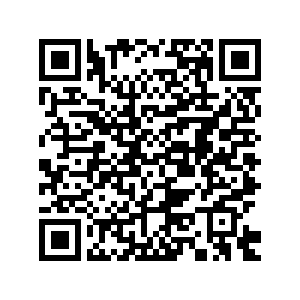by Anatoly Antonov
On March 29-30, the second "Summit for Democracy" was held under the auspices of the United States. What is wrong with this flagship project of the administration? Let's try to figure out why the American initiative hardly serves the declared goals of advocating democracy and human rights.
The first forum, held in December 2021, was characterized as the epitome of hypocrisy even by a number of observers in the West. Questions arose about the ability and largely the moral right of Washington -- dealing with many political and socio-economic controversies at home -- to impose its canons and way of life on others.
Doesn't America have problems with racism, gun violence, corruption and social inequality? Why are approximately 40 million people living below the poverty line in the richest country in the world? Yet, the 50 wealthiest Americans are richer than half the U.S. population. There is also a clear problem with the freedom of speech, evidenced eloquently by the "cancel culture" -- cutting out people from the public sphere for dissenting views. Many admit that the U.S. electoral law also has certain flaws, lacking an institute of direct presidential elections.
Democracy is thus being replaced by "democratism" -- where ruling elites enjoy practically unlimited power, democratic norms are just declared and democratic institutions are nothing but window dressing. A research by American experts says that 85 percent of U.S. citizens want the political system to be reformed because they have no opportunity to influence government decisions on the most important issues.
Such case should hardly be a role model. There are no perfect countries. Human rights protection is not the exclusive prerogative of the West. Democracy is not built on templates, but is a product of the internal development of a particular society. We have seen the disastrous consequences of the attempts to forcibly export American democracy to Iraq, Libya and Afghanistan.
Back in the early nineties, Western colleagues absolutized the principle of human rights in every possible way in conversation with us to achieve a concrete political goal. Russia was compelled to accept the standards of state-building and governance beneficial to the West, but implying serious losses for our country. We have drawn conclusions.
At the first "Summit for Democracy," the administration encouraged other participants to make what it called "voluntary commitments" to promote democracy and human rights. And Western NGOs were to monitor and assess the progress made.
We know how they work. After the launch of the special military operation, these so-called human right activists began to accuse Russia of all sins, shifting the blame on us. As we know, organizers of the second "Summit" were vigorously inciting others to include odious anti-Russian language in the draft of the joint final declaration, thus acting in pretty much the same spirit.
Draft texts for the meetings give the feeling that this year Washington has set a goal of shaping a human rights coalition against Russia and dragging partners into anti-Russian traps under the cover of a noble idea of developing democracy. It is obvious that subsequently the drafted statement was manifested as a common international position condemning my country.
Moreover, under the "umbrella" of democratic freedoms promotion, participants of the White House initiative discussed such unrelated issues as technological development of states. A thesis was pushed through that -- it is necessary to restrict access to advanced technologies for "authoritarian" regimes, cutting off undesirable countries from progress. But there was Washington's cold calculation behind this rhetoric -- the pursuit of establishing global control over the innovation market and distributing single-handedly all benefits to suit its own interests.
The protection of democracy and human rights should not be used as an instrument of putting pressure on others, especially undesirable countries. We are convinced that the politicization of these issues results only in the increased tension in international relations. Any state has its achievements and shortcomings. Therefore, efforts to eliminate the imperfections can only be universal, but not based on coalitions with a slogan "who is not with us is against us."
Russia has been consistently following the democratic path taking into account its historical experience and traditions. We are against the imposition of gender-oriented approaches and drug-liberalism, the cult of consumerism and overindulgence -- to the detriment of family values. Still, we do not impose our own views on others.
It is extremely dangerous to cultivate in people the idea of their exclusivity, regardless of the motives. Thus, in a joint statement following the state visit of Chinese President Xi Jinping to Moscow on March 20-22, Russia and China expressed their commitment to a multipolar world order, rejected the idea of a "superior democracy" and condemned the creation of a flawed narrative about the division of people of the world into the chosen and the outcast. The parties called for respect for the diversity of cultures and civilizations. In November 2021, on the eve of the first "Summit," we, together with then Chinese Ambassador to the United States and now the Chinese State Councilor and Foreign Minister Qin Gang, published a critical article outlining the defects of the American forum.
I am convinced that the attempts to use the human rights doctrine to play geopolitical games destroying sovereignty of states and to justify Western political, financial, economic and ideological dominance should cease. In today's complex and turbulent world, it is important to protect and preserve such fundamental principles of international accord as sovereign equality and non-interference in the affairs of other states. This would be a true manifestation of democracy and would prevent a slide into chaos. Russia is ready for such work.
Editor's note: Anatoly Antonov is the Russian ambassador to the United States.
The views expressed in this article are those of the author and do not necessarily reflect the positions of Xinhua News Agency.
